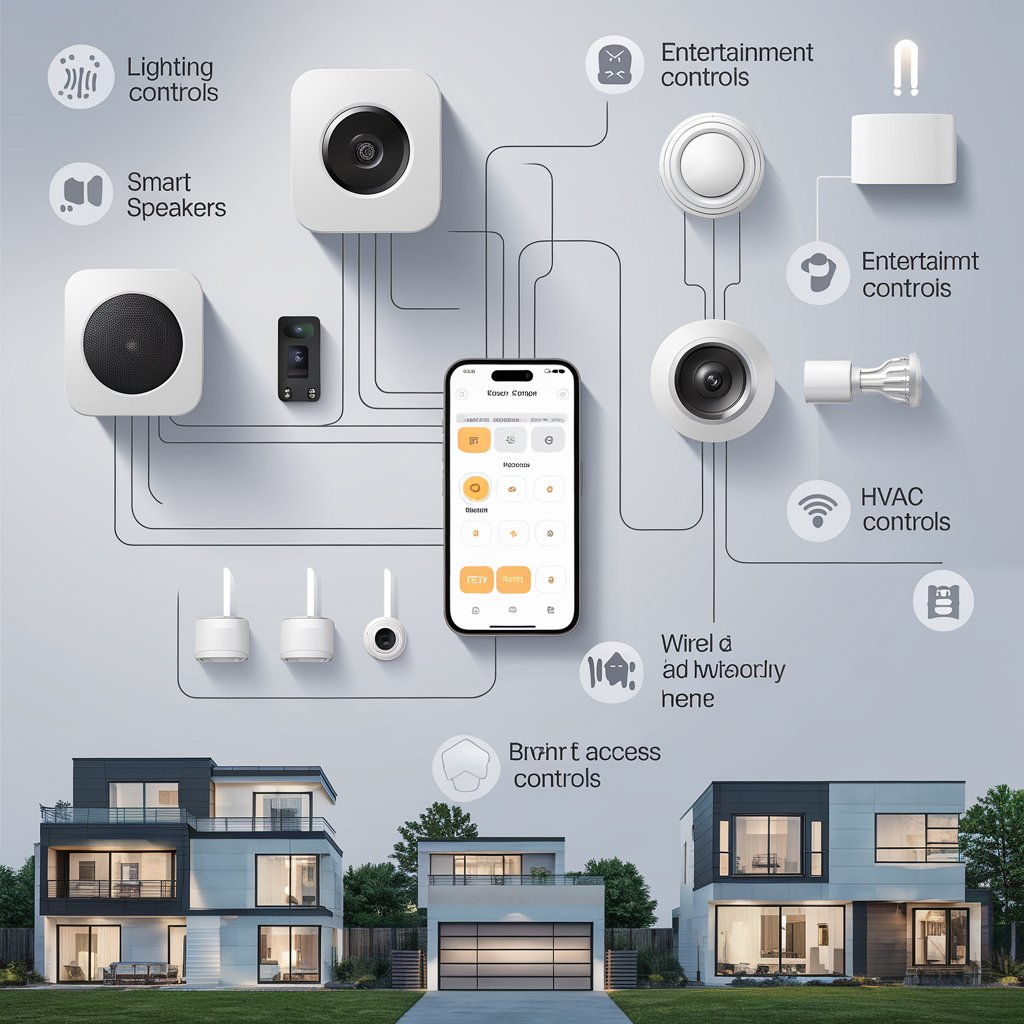The home automation system market size was valued at USD 57.67 billion in 2024 and is projected to reach USD 73.49 billion by 2029; it is expected to register a CAGR of 5.0% during the forecast period.
The home automation system market has rapidly evolved, driven by technological advancements and changing consumer lifestyles. Home automation encompasses a variety of technologies that allow homeowners to remotely control and monitor their home systems, including lighting, heating, security, and entertainment. The global shift towards smart homes is reshaping how people interact with their living environments, providing unprecedented convenience, security, and energy efficiency.
Download PDF Brochure @ https://www.marketsandmarkets.com/pdfdownloadNew.asp?id=469

Trends Shaping the Future of Home Automation
Several key trends are influencing the future of home automation. First, the integration of artificial intelligence (AI) is enhancing the capabilities of smart devices, enabling them to learn user preferences and automate tasks accordingly. This evolution is making home automation more intuitive and user-friendly. Additionally, the growing demand for energy efficiency is leading to the development of systems that optimize energy usage, reducing costs and environmental impact.
Global Market Size and Growth Projections
The home automation system market is witnessing substantial growth, with projections indicating that it will continue to expand significantly over the next several years. Factors such as increasing disposable incomes, rising urbanization, and greater awareness of smart home technologies are contributing to this growth. Analysts predict that the market will reach multi-billion-dollar valuations, underscoring its potential as a critical segment in the broader technology landscape.
Latest Smart Home Technologies
The latest innovations in smart home technologies include advanced security systems, smart lighting solutions, and integrated climate control systems. Smart speakers and voice assistants, like Amazon Alexa and Google Assistant, are becoming central hubs for controlling various devices, enhancing user interaction and accessibility. Additionally, the advent of smart appliances—such as refrigerators, ovens, and washing machines—allows for more efficient home management.
IoT in Home Automation
The Internet of Things (IoT) plays a pivotal role in the home automation landscape. By connecting devices to the internet, IoT enables seamless communication between various systems, allowing homeowners to monitor and control their environment remotely. This connectivity enhances the functionality of smart devices, making it easier for users to manage their homes from anywhere using mobile applications. As IoT technology continues to advance, we can expect even more sophisticated home automation solutions to emerge.
Security Features in Modern Home Automation Systems Industry
Security is a top priority for homeowners, and modern home automation systems are increasingly incorporating advanced security features. These include smart locks, surveillance cameras, motion sensors, and alarm systems that can be monitored and controlled remotely. Additionally, integration with AI technology allows for real-time alerts and notifications, enhancing the overall safety of the home. This focus on security is not only appealing to consumers but is also driving adoption rates in the home automation market.
Future Consumer Preferences in Home Automation
As the market evolves, consumer preferences are shifting toward solutions that offer convenience, customization, and energy efficiency. Homeowners are looking for systems that not only integrate seamlessly with existing devices but also provide intuitive interfaces for easy control. The demand for sustainable technologies is also on the rise, as more consumers prioritize environmentally friendly solutions in their purchasing decisions.
The key companies in home automation system companies include
- Johnson Controls Inc. (Ireland),
- Honeywell International Inc. (US),
- Schneider Electric (France), Siemens (Germany),
- ASSA ABLOY (Sweden),
- Apple Inc. (US),
- Robert Bosch (Germany),
- ABB (Switzerland), Legrand (France),
- ADT (US),
- Resideo Technologies Inc. (US).
In conclusion, the home automation system market is set for substantial growth driven by technological advancements, consumer demand for convenience, and a focus on energy efficiency and security. The integration of IoT and AI technologies is reshaping the landscape, making smart homes more accessible and efficient. As consumers continue to embrace these innovations, the home automation market will likely expand, offering new opportunities for manufacturers and service providers alike. The future of home automation is bright, promising enhanced living experiences for homeowners around the globe.
FAQ on Home Automation System Market
What is the market growth for home automation?
The home automation market is experiencing significant growth, projected to reach substantial valuations in the coming years. Factors driving this growth include increasing consumer awareness, technological advancements, and a rising demand for energy-efficient solutions. Market reports indicate a compound annual growth rate (CAGR) that highlights strong future potential.
What are the requirements for home automation?
Home automation typically requires a reliable internet connection, smart devices (such as lighting, HVAC, and security systems), a central hub or controller (like a smart speaker or app), and compatible protocols for device communication. Additionally, electrical installations and home network configurations may be needed for optimal performance.
What is the necessity of a home automation system?
Home automation systems enhance convenience, security, and energy efficiency in residential settings. They allow homeowners to control various devices remotely, monitor their homes in real-time, and automate daily tasks, leading to improved quality of life and peace of mind.
What are 4 advantages of home automation?
- Convenience: Control devices remotely or automate routines for ease of use.
- Energy Efficiency: Optimize energy consumption, leading to cost savings on utility bills.
- Enhanced Security: Monitor homes through smart security systems and receive alerts on suspicious activities.
- Increased Property Value: Smart home features can increase the attractiveness and market value of a property.